With Can’t Get Enough, bestselling author Kennedy Ryan brings her beloved Skyland series to a powerful close—this time centering Hendrix Barry, a fiercely ambitious woman navigating family responsibilities, societal expectations, and the surprising arrival of love. Known for weaving romance with themes of activism, identity, and emotional truth, Ryan’s latest novel doesn’t just ask whether love is worth the risk—it explores what it means to live on your own terms. We spoke with Kennedy about the inspiration behind Hendrix’s story, the importance of representing modern womanhood in all its forms, and how romance can be a vehicle for joy, healing, and liberation.
Can’t Get Enough marks the latest installment in your Skyland series. What inspired this particular story, and how does it expand the world of Skyland?
Hendrix’s story is in context of my intentions for the entire series, which was to depict a group of women who accept and don’t judge each other’s choices. Meaning, so often culture pits women against each other for their choices about vocation, relationships, children, etc . . . These are three women in different phases of their journey.
One is a stay-at-home mom when we meet her. One is a hybrid—a business owner, but also incredibly involved with her kids. And then there’s Hendrix, who is childless by choice, ambitious, but also concerned about her community and always looking for ways to pour into others. So she speaks to a very specific, modern experience.

Buy the book now: Bookshop.org | Amazon | Barnes & Noble
It expands on what we’ve built in the first two books because we learn so much and peel away so many layers when it’s each woman’s turn to take center page. It is also a time to further cement this unbreakable bond of friendship between the three women. In each book, they are there for each other in ways that feel like platonic soulmates. Hopefully this last book expands that sense of community and reiterates that we all deserve to be centered and loved and respected. We all deserve joy.
The Skyland series beautifully blends romance, family, and personal growth. How did you approach developing these interconnected stories while keeping each book fresh and distinct?
I think developing their characters authentically and looking for what was universally human, but specific to their communities, culture, and family experience distinguishes them. That balance makes them feel like people we know and love and are.
My favorite thing has been, with each book, a group of readers emerging for whom the book felt most resonant. And it’s not always in the expected ways. Meaning, all these really young women tell me they aren’t a forty-year-old mom of two who is grieving a great loss, but they identify with Yasmen’s battle with depression, or Soledad’s search for agency. Or women who have kids seeing themselves in Hendrix who is childless by choice, but sacrifices to take care of her mother and everyone around her. And all these things are happening in the context of finding romantic relationship.
This series believes all loves are created equal. Self-love as a foundation. Romantic love and platonic love as extension of loving and understanding what you want, who you are, what makes you happy, and not settling for less.
Music and culture play a big role in your books. Did any particular songs, artists, or cultural influences help shape Can’t Get Enough?
For sure. All the titles are songs, which was fun. Before I Let Go was inspired by Frankie Beverly and Maze or the Beyonce version, depending on who you ask. This Could Be Us was actually from a super catchy song of the same name by Rae Sremmurd. And Can’t Get Enough was from the J. Cole song, but then later upon further reflection, the Tamia song by that title.
There are definitely things that grow from or build on cultural discourse, specifically the debate about being childless by choice, destigmatizing mental health and healing, and issues of equity, to name a few. Nina Simone said an artist’s duty is to reflect the times, and I’m constantly looking for ways to reflect what’s going on in the world so we can interrogate it where necessary and celebrate it where possible.
The Skyland series has touched on a range of important themes, from activism to healing. What conversations do you hope Can’t Get Enough sparks among readers?
I really hope to extend the childless by choice discourse, just in the sense that there are a lot of women who don’t see children as part of their desired future. That doesn’t make them cold or less of a woman. We are not defined by our wombs nor by our ability to carry children.
Increasingly we see power structures trying to strip women of reproductive choice. Even looking for ways to encourage women who may not be prepared to have or to be good parents to have kids. It’s not that having kids is bad. It’s that women should have agency, bodily and otherwise.
CGE also definitely raises the questions we’re asking as a society now around equity. It is laughable to think that in the relatively few years marginalized people have had legislated freedom, we would have “caught up” in any of the measures systemic racism has created gaps—health care outcomes, generational wealth, education, to name a few. Eliminating equity measures isn’t creating meritocracy. If America knew how to create meritocracy, it would have done it by now and it has never. This debate is not about giving people a chance who don’t deserve one. It’s about giving people a chance who have never had one, or who had limited access to opportunities and resources. And every time power structures have yielded anything to the groups that prop them up and have built success through free labor and exploitation it has been under duress.
I also want to encourage people who are in the season of caring for aging parents. With people living longer, we see it more. I want to examine grace and forgiveness and dignity at the end of life, and what it looks like for children having to step in to assist their families.
You’ve written across different romance subgenres—from sports romance to second-chance love to political and social-driven stories. What’s a romance trope you haven’t tackled yet but would love to?
This is kind of a micro-trope, but I want to write a widowed heroine.
Romance as a genre is constantly evolving. How do you see the industry changing, and where do you hope it goes next?
Social media, specifically TikTok, obviously has reshaped the publishing landscape. I think indie publishing is such a force and influence now. As a hybrid author, I love to see it. What underpins that at least in part is creative freedom and agency. Meaning there are indie authors who write what they want to read or experiment and come up with something that feels fresh. For example, not that dark romance didn’t exist at all, but the wave we’re seeing now is a groundswell that rose primarily from indies writing it, pushing boundaries, and now big publishers acquiring and repackaging it.
I think especially for Black romance authors to succeed in publishing, there needs to be voice and input and agency. Black indie romance is seeing a powerful surge of visibility and profitability because these authors have the freedom to curate spaces where Blackness is centered and celebrated and considered editorially, in marketing, covers, etc . . .They know how to reach their readers. I think that’s a lesson to people who say Black books don’t sell. No, you don’t know how to sell Black books because when presented with a product that centers them, Black women buy our books. Black women are the most educated demographic, and are statistically the demo most likely to buy a book. And you think they won’t buy books that celebrate them? Wrong. LOL
I want to see continued expansion of who is getting a happily ever after. We still don’t have enough Black, brown and queer people being published and being set up for success through the resources and attention their work deserves. I want to see more shelf room for books that aren’t white cis het. I want to see expanded opportunity and visibility for marginalized authors. Where are our special editions? Exclusive editions? Sprayed edges? Window displays? Midnight release parties? Not that it’s not happening at all, but it’s definitely not happening enough. I say that as someone who has most of those things. I would be disingenuous not to acknowledge that I’m experiencing a lot of that, but I’m not interested in just my own success. I want to see others enjoying those opportunities, too. And the continued denial of it is systemic and a problem.
If you could sit down and have a conversation with any fictional character—your own or from another book—who would it be and why?
Janie from Their Eyes Were Watching God. What a remarkable depiction of self-actualization and reclamation of power. And survival and defining yourself for yourself after men have shaped you into a form that suited them all your life. How’d you do it??? Teach us your ways. LOL
Your books touch readers all over the world. What’s a meaningful reader response you’ve received recently?
Most recently it’s been from ARC readers of Can’t Get Enough who feel seen through the childless by choice representation, and from people who are walking with a loved one through some form of dementia. But across the series, from BILG, lots of messages about depression and grief and being encouraged to seek therapy or consider anti-depressants as part of mental health and wellness. In TCBU, such overwhelming response to Judah’s autistic boys. And from women who saw themselves in Soledad.
What are some of your favorite books you’ve read so far this year and/or are looking forward to reading?
I’m on deadline for my next book, so most of what I’m reading honestly is research for that. So I have been memoir-ing a lot. LOL! Not as much reading for pleasure the last few months, but I’ve enjoyed A Tropical Rebel Gets the Duke by Adriana Herrera, Audre and Bash Are Just Friends by Tia Williams, Plus Size Player by Danielle Allen, Limerence by Scarlett Drake to name a few. I’m looking forward to starting Jahquel J’s Delgato series once I get out of deadline and release and tour mode.
What’s next for you? Can you share anything about your upcoming projects?
I’m writing the second book of the Hollywood Renaissance series, Score. It’s the follow up to book 1, Reel. It features a different couple, Verity and Monk, who were introduced in the first book. I love writing creatives, and she is the screenwriter and he oversees music for the movie they are both working on. Should release next year. Very excited about it.

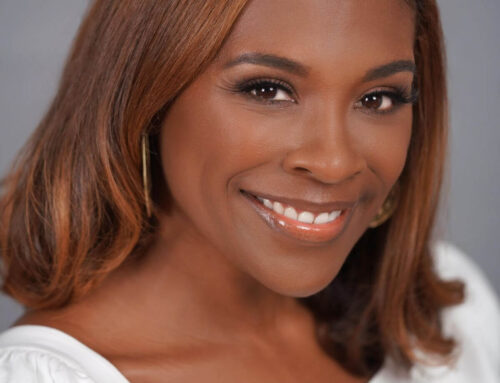
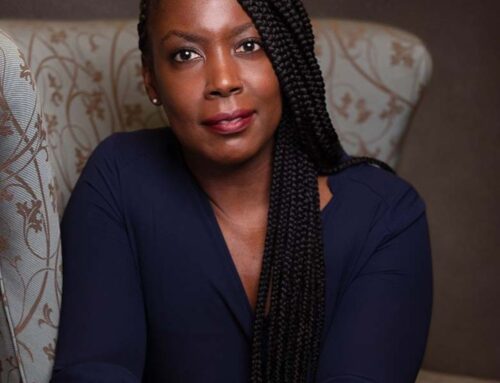
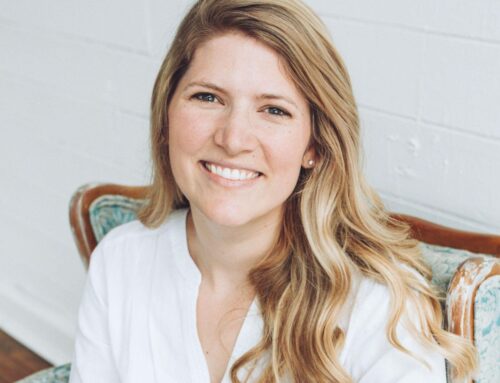
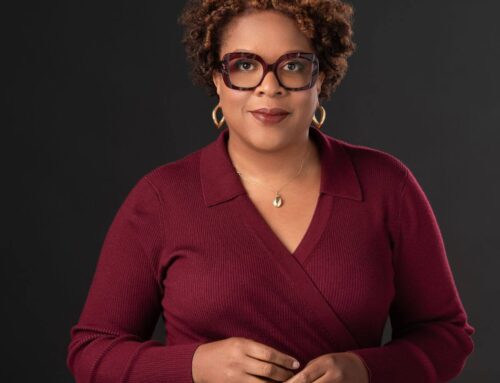
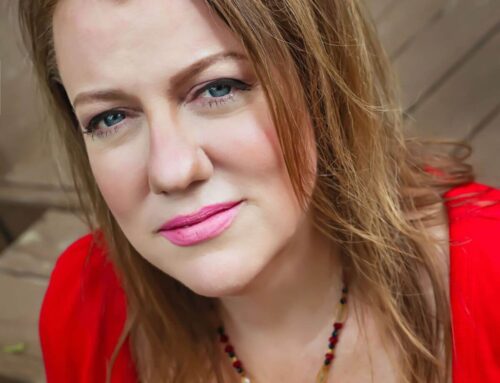
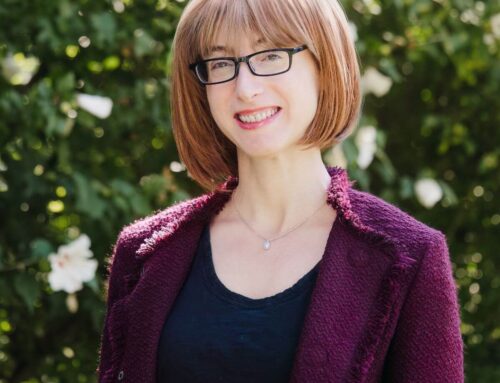
Leave A Comment